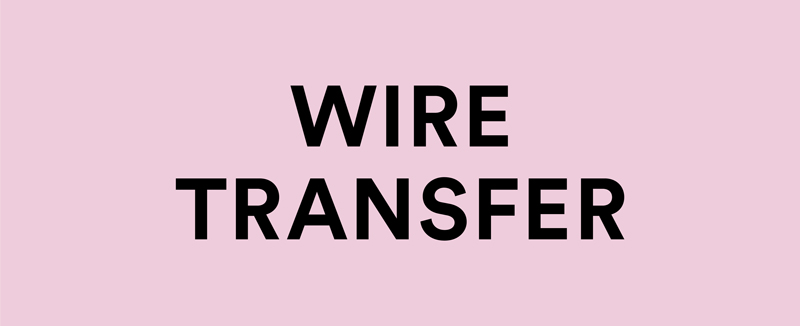Articles with tag:
Literature
(9 results)
Philip Roth meets Primo Levi / The writer and the chemist
One of Phillip Roth’s best books is not a novel, nor even a collection of short stories; rather it is a book of interviews, entitled Shop Talk (in Italian Chiacchiere di bottega). Published in English in 2001, the volume contains a series of conversations with fellow writers. The interviews are preceded by vivid portraits of the people that Roth met, from Aharon Appelfeld to Ivan Klima, from Isaac Bashevis Singer to Milan Kundera; then there is a visit with Edna O’Brien and an exchange of letters with Mary McCarthy, a portrait of Philip Guston and a series of quick reviews of the books of Saul Bellow. These are wonderful pieces in which Roth displays not only that he is an excellent reader – and how could it be otherwise given that he is a writer? – but also that he is capable of stepping into the role of critic, a role not familiar to all authors, particularly if they are celebrities. A critic is someone who enters the depths of the books he reads, to travel through the fine web of their substance and from this travel glean general observations about literature, the world and himself. Roth demonstrates in his ‘shop talk’ that he is possessed of extraordinary humility. He never...
Umberto Eco: How I Wrote my Books
It is snowing when I get to Umberto Eco’s house in Milan. It’s February, and his latest book, Numero Zero, published by Bompiani at the beginning of 2015, shot to the top the best seller list almost instantly. There have been several reviews, and Eco has given more interviews than is his wont, if I remember correctly. So what can I ask him that hasn’t already been asked? I had read the proofs before the book came out, but we weren’t able to find a date to meet before today. I’m excited to meet him. Eco is famous throughout Italy and the world over, perhaps the best-known living Italian author today. Essays, articles, whole books have been written about him, and yet there are many things about him that escape his readers and critics. One thing I want to find out more about is his double role as essayist and fiction writer. Another is the way he works. Then there is the trifling matter of having written a book at the age of 82. No small feat, in anyone’s book. So this is where I start my interview: sitting on his sofa I ask him about Numero Zero. What gave you the idea for this book? I’ve been writing articles criticizing journalism since the 1970s. In the 1990s a fellow...
Why Africa Why
Why Africa Why. And who am I to say? Why Africa Why? All I remember is a river I did not sail up, in search of who, Kurz, Marlon, who? And I do remember a few Masai, one in particular, riding with me a road in Kenya, and a lake with a European name it’s time to shed, perhaps, and a desert and dunes and things that are wider even than Africa, amazing as it sounds. I don’t remember the Namibian desert and its dry mysteries of a distant hut without running water, because I’ve never visited it. And a lively Ivory Coast that runs only in my imagination along with a singing Senegal and a Congo I’ve read about in some brilliant short stories and Zan-zi-baaar and Mad-ag-as-caaar, being the most important scar, like the one on the face of African princes, from where? I don’t remember now. Malawi better than Malindi. Two people having an argument and you know the one who laughs and walks away first is the one who won it. Yes, booming voice and smile, Africa. People lining the side roads of the little Africa I’ve seen, that dances away in my mind with the Africa I’ve read and heard and seen only on a screen and imagined and dreamt. For I know very little about this Africa, what do I...
Putin and the Russian Spirit: An Interview with Gian Piero Piretto
The house is filled with books and paintings, but what strikes the eye is the accumulation of objects on the shelves and surfaces: postcards, souvenirs, figurines, gadgets, all from Russia, the country Gian Piero Piretto has studied all his life. Piretto is strictly speaking neither a historian nor a literary critic. His field of inquiry is visual culture, a discipline which has established itself in Italy only very recently. Throughout the years he has written extensively, and his books are all unusually original. In 2001, Einaudi published Radioso avvenire: Mitologie culturali sovietiche (Radiant Future: Soviet Cultural Myths), which plots the course from the utopian visions of October 1917 to the 1980s. Piretto analyzes images and everyday objects to illustrate Stalin’s famous claim in 1935:“ Life has improved, comrades. Life has become more joyous.” In short, the books provides us with a visual history of the USSR and its accompanying myths. Piretto’s most recent books are published by Sironi: in 2010, Gli occhi di Stalin (Stalin’s Eyes) and in 2012, La vita privata degli oggetti sovietici (The Private Life of Soviet Objects). Vasilii Efanov, Famous People of the...
Peter Handke: The Essay Writer
In recent years, critical attention towards the Austrian novelist, playwright and political activist of Slovenian origin, Peter Handke, has focused more on his activism than on his books. In particular, he sparked controversy when he spoke out in support of the Serbian regime, during the sanguinary civil war in former Yugoslavia, and of its leader Slobodan Milošević, both during his trial in the Hague and at his funeral. Many of his most important works are out of print and there are fewer and fewer reprints scheduled, though there may be some change in the air. And yet, his work continues to be translated. Fortunately, this shows that Peter Handke still enjoys a worldwide readership despite the polemics. Donata Wenders, Peter Handke, Chaville 2009 After receiving such prestigious awards as the Kafka prize in 2008, and the Ibsen prize in 2014, Handke’s return to the public eye inevitably stirred up the controversy. Perhaps it is easier to attack Handke for his views than to analyze and comprehend the full range of motivations the writer has given for his opinions. Admittedly, his unquestioning espousal of Milošević’s doctrines is hard to digest, in particular by today’s...
Kafka in Charlie Chaplin’s Hands
What do Kafka and Chaplin have in common? They both explore the margins of life, where exclusion from the world and from history opens up the curtains of dissimulation and accepts the cognition of pain as destiny. Is the comparison unfeasible? In Benjamin’s view, the worlds of representation are linked together with subtle ties. Aside from differences in time, place, and artistic media, there are mysterious affinities which allow us to juxtapose the two with unexpected hermeneutic results. “Chaplin holds in his hands a genuine key to the interpretation of Kafka. Just as occurs in Chaplin’s situations, in which in a quite unparalleled way rejected and disinherited existence, eternal human agony combines with the particular circumstances of contemporary being, the monetary system, the city, the police, etc., so too in Kafka every event is Janus-faced, completely immemorial, without history and yet, at the same time, possessing the latest, journalistic topicality.” Opening the eighth volume of Benjamin’s collected works is like entering a labyrinth where the paths do not follow a geometric pattern of any kind. They simply carry you on a path of awe and unlikely approaches....
Twin H. A new Novel by Giorgio Falco
Three slightly rotten looking apples on a leaning shelf, indefinite shadows like pools beneath them. The black and white photo on the cover of the Italian edition of the book, by Sabina Ragucci, evokes the idea of time passing. Apples come into the first sentence, and become part of a discreet but insistent refrain in the book. The protagonist, and narrative voice for much of Giorgio Falco’s new book, La Gemella H ("Twin H", Einaudi 2014) sings the refrain to herself repeatedly: “we only ate apples in strudel in the beginning.” After Pausa caffè ("Coffee Break", Sironi 2004) and the magnificent short stories collected under the title L’ubicazione del bene, ("The Location of Good", Einaudi 2009), Falco tells the story of Hilde Hinner, endowed with the almost magical ability to describe both her own and her sister Helga’s life since their birth in 1933 – her sister the elder by a few minutes. Hilde tries to become independent by taking up a job as a shop assistant at the Rinascente department store, horribly rebuilt after the ravages of war, but she soon returns to the fold. The twin sisters lives follow a parallel path almost to the bitter end. Identical in appearance...
Cheever Meets Modugno
Years ago I heard a famous Modugno song for the first time. It was called Marito in Città and it first came out in 45rpm in 1958, though it had already circulated the year before. The story is a topos of the 1950s: a husband drops his wife and kids off at their long-vacation destination and then returns to enjoy city life unencumbered, with the excuse of a job to do. I must confess that the song stuck in my mind for months and still today I appreciate its unusual skillfulness. It was a particularly successful example of a gift Modugno in particular had for evoking a certain quality in the men of his day without any reticence or rhetoric. In the case of this song, the protagonist’s singular charm is quintessentially masculine and Italian. The man proclaims himself to be rich, a good catch for a woman, a tombeur de femmes, only to be betrayed by his excruciating clumsiness, which puts paid to his dreams of adultery. The music is especially congenial, adding a flavor of farcical sympathy to the story. The irresistibly Italian tune hit the charts, and radios blasted the song provocatively in apartments throughout Italy. Foreign tourists must have been equally struck by...
What a book is for me
For once let’s not talk about books as objects. At least not today. The rhetoric of recto and verso, the unbearable lightness of its being, the fragrance and roughness of its paper, the wrapping of its cover, that reveals something, but not too much and not immediately. We could talk, for instance, about how each of us might imagine a book that blends advanced technology with the perfection of a ready-made object. Perhaps, one day, instead of pages sitting on an individual screen of an individual tablet, there will be a screen on all the pages of an individual book. Why not? Research and tests on the technology of materials will have made it possible to transmit digital information via paper fibers. The other day I sat and ruminated for hours, while traveling from train to plane to train again, about this unhealthy idea of a book in the future. It would be white, I thought (or a changing color), of average size, portable, page-turnable, surfable, with screen-pages made of a special make of paper that turns on and off. The best of digital combined with the best of analogical. I’d really much rather talk about books as stories though. If we do talk about stories, I...









 Since 2011
Since 2011 

